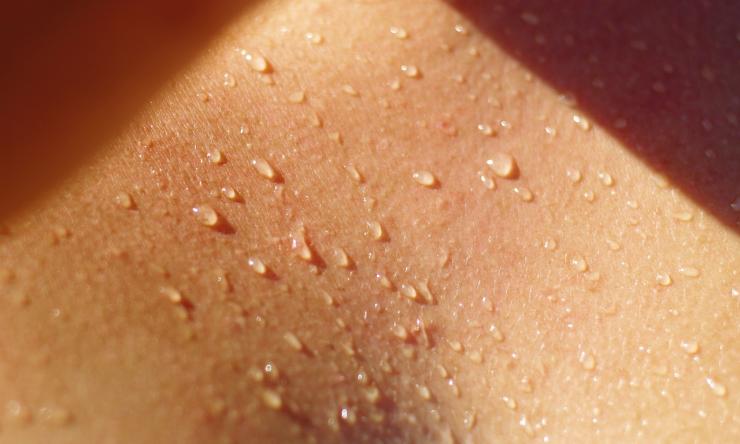Sweat: the good, the bad and the sticky
This summer we can’t help but talk about and experience sweat! While it might not be the most appealing way to get through the sticky, summer months, it is an important part of keeping our bodies healthy in the heat. Isabel Valdez, physician assistant and assistant professor of medicine at Baylor College of Medicine, explains the basics.
“Most of us know that our bodies use sweat to cool us down as it evaporates. It can happen anytime our core body temperature rises, whether we are exercising or just spending time in the heat,” Valdez said. “When it comes to exercise, sweat is an important way to keep us from overheating as we increase our endurance and strength.”
So sweating is a good thing, but the more you sweat, the more you lose hydration, so it is important to drink up! Valdez says water is the tried-and-true best remedy to replenish our bodies when working or exercising outside. There are also drinks with electrolytes readily available that can help as well. Find out how much water you should be drinking to stay hydrated here.
“While you are expected to sweat during the heat, sweating more than usual along with additional symptoms like lightheadedness, nausea, headaches, fast heart rate, muscles cramps or abdominal pain is bad! It could suggest that the body cannot regulate the core temperature and it may be getting too high,” Valdez said.
With the heat dome affecting our climate these days, Valdez said we should be aware of the risk of heat exhaustion and other heat related illnesses.
“If you find yourself experiencing these symptoms, it is time to stop your activity and rest. Better yet, don't wait for these symptoms to show up. Take frequent breaks to rest and drink fluids so that you can prevent these issues from happening altogether,” she said.
Be aware of how you feel and keep an eye out for others around you. If they begin to exhibit these symptoms, help them find a cooler spot, offer them water or get medical attention.
Learn more about heat illness warning signs here, and the different stages of heat illness here.










